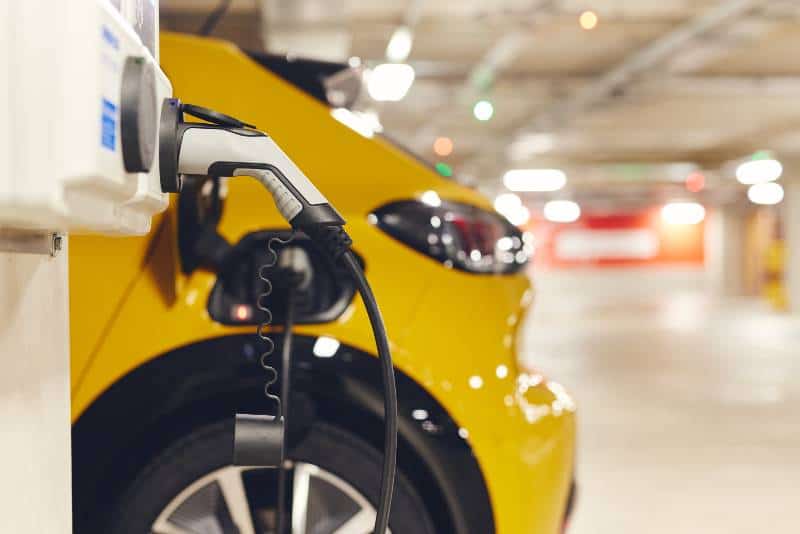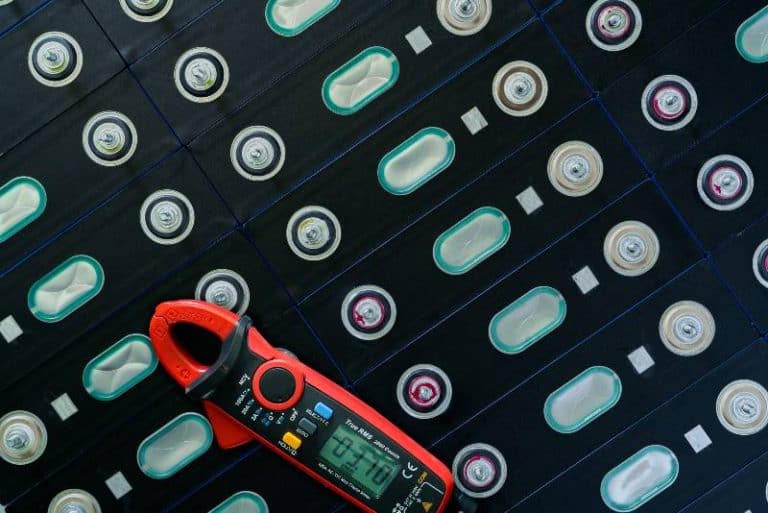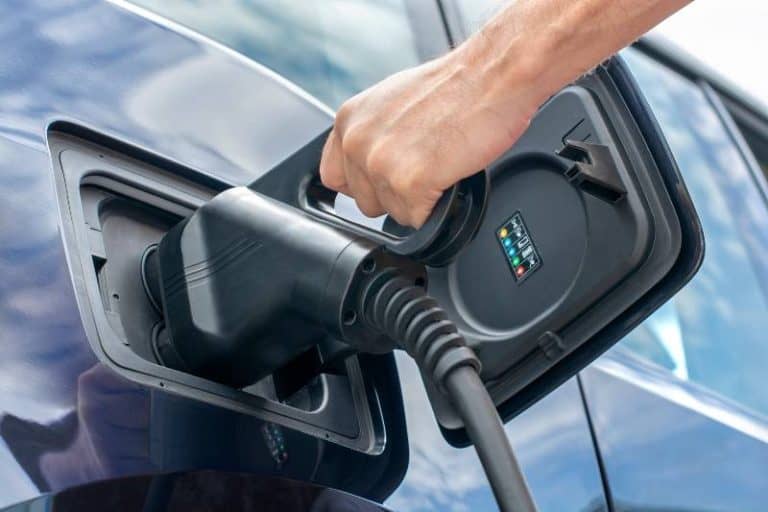How Long Do Electric Cars Last vs Gas Cars?
Electric cars are becoming more and more popular as people become more environmentally conscious. But how long do electric cars last compared to gas cars? And what are the benefits of owning an electric car? In this blog post, we will answer these questions and provide you with all the information you need to make an informed decision about whether or not an electric car is right for you!
Prospective buyers of electric vehicles used to be concerned about the life of the battery, but advancements in technology have made it possible for EVs to live just as long as conventional gas-powered vehicles, if not longer.
Key Takeaways
- The cost savings associated with electric cars can be significant in the long run.
- Electric vehicles can be beneficial in terms of maintenance costs and lower emissions.
- Consider your lifestyle and needs when choosing between electric and gas-powered vehicles.

Compared to conventional cars, how long do electric cars last?
One of the most popular EVs; Tesla estimates that its vehicles have a lifespan of around 200,000 miles in the United States, but only 150,000 miles in the European Union. This is a significant improvement over the typical lifespan of a vehicle, which is only 12 years on average. To put it another way, it is anticipated that electric car batteries would outlive the vehicles in which they are installed.
What Is the Lifespan of an Electric Car?
The lifespan of the battery is the biggest unknown when it comes to EVs. It is common knowledge that an electric vehicle’s battery health deteriorates with time, and this deterioration can be accelerated in hot climates or with excessive usage of DC fast chargers.
Even with degraded performance, most EV producers assert that their batteries will survive for the duration of the vehicle’s useful life.
In spite of the fact that lithium-ion batteries have a “limited number of charging cycles,” as stated by the U.S. Department of Energy, they are typically replaced after being involved in an accident or developing a defect.
Comparatively, Nissan says the battery in the Nissan LEAF can last up to 22 years, while Tesla says its capacity reduces by only 20% after 200,000 miles.
Some car manufacturers are developing batteries with a lifetime of a million miles or more, which could be swapped between vehicles.
If you want to know more about batteries for EVs, make sure to read it here. The article discusses LFP vs NMC Battery so you can decide what’s best for your EV.
How Long Do Electric Car Batteries Last?
Long-term data on an electric car’s durability is scarcer because of the relative novelty of the technology. Reports from anonymous sources imply that some Teslas have clocked in at over 400,000 kilometers traveled, albeit this may not be the case for all owners.
A recent article published in Joule calculated the total cost of ownership for a fully electric vehicle during its expected lifespan of 15 years and total mileage of 161,729.
Lower maintenance and fuel expenses contributed significantly to the conclusion that electric vehicles had lower total lifespan costs than gas vehicles by as much as $15,000.
There are fewer parts in play with an electric motor, and the brakes last longer thanks to regenerative braking.
Since EV battery technology is always advancing, it is conceivable that future electric vehicle models will have even greater endurance than their predecessors and significantly outperform gas-powered vehicles.
How Do EV Batteries Degrade?
Normal causes of EV battery deterioration are increased temperatures, repeated charging/discharging, and time. The duration of an electric vehicle battery is greatly influenced by its storage and operating temperatures, and in general, EV batteries have a shorter lifespan in warmer climates.
How long are EV warranties?
U.S. federal law mandates an 8-year/100,000-mile battery guarantee for electric and hybrid vehicles sold in all states; California law extends that to 10 years/150,000 (KBB, 2022).
The Basics of EV Batteries
Battery life in EVs can be extended by connecting the vehicle to an electrical outlet. Furthermore, they have regenerative braking systems that allow them to recover and store the kinetic energy often dissipated as heat when braking. All-electric vehicles are far more eco-friendly than their gasoline-powered counterparts.
How To Extend/Maintain EV Battery Life
Follow EV Manufacturer Maintenance Guidelines
The best way to prolong the life of your electric vehicle’s battery is to follow the manufacturer’s maintenance guidelines.
Each EV manufacturer has its own set of recommendations for how to care for your vehicle, and these recommendations can vary depending on the model you have. Some manufacturers, like Tesla and Nissan, offer online guides that you can consult whenever you want. Other manufacturers provide more general information on their websites, so it’s important to check there as well.
Pay attention to temperature extremes
The most common risk occurs when leaving a vehicle parked in direct sunlight or high heat without using a cooling system. To maintain optimum performance, the automated temperature management system in your electric car will deplete your batteries. Maintain a consistent temperature range during operation by parking your electric vehicle in the shade or plugging it into an outlet when not in use, as the thermal management system will only operate when using grid electricity.
Cut Down on DC Rapid Charging
If you’re on the road and need to top off your EV’s battery in 30 minutes, by all means, utilize a DC Fast Charger. But car companies advise against using Level 3 charging on a regular basis. It’s best to use Level 1 or Level 2 charging to fully charge your EV overnight so you can start the day with a full charge.
Drive Carefully and Brake Slowly
The most important thing you can do to maintain your electric vehicle battery is to drive carefully and brake slowly. Driving rapidly will put extra strain on the battery and cause it to wear out more quickly. Likewise, making hard braking maneuvers puts additional strain on the battery, as well.
The best way to prolong your EV battery life is by driving at a speed that is appropriate for your car’s design and road conditions.
Maintain a charge of 20 to 80 percent (most of the time)
The battery life of an EV can be prolonged in the same way that a smartphone’s battery can be by avoiding extreme charging and discharging. Keeping your electric vehicle’s battery between 80 and 20 percent charged will help it last longer.
Maintain an optimal battery charge during long storage
Parking or storing an electric vehicle with a full or empty battery is also detrimental to the battery’s lifespan. Get a timed charger and plug in your electric car if you don’t plan on using it much or if you have a long trip planned. If you leave your car parked at 100% for a long time, the battery will have a hard time holding its charge. One option is to keep the charger at a level of charge between 25 and 75 percent on average rather than completely charging the battery.
Can EV Batteries Be Recycled?
Yes, electric vehicle (EV) batteries can be recycled! Read on to find out how they do this.
What happens to old electric car batteries?
Most people don’t think about what happens to the big batteries used to power electric vehicles (EVs) when they reach the end of their useful life.
Fortunately, recycling and reusing old EV batteries are becoming more and more common each year. In the US, when their typical 8- to 10-year warranty period ends, the majority of EV providers are capable of reclaiming battery cells for up to three lives before finally sending them off for recycling – making these batteries a viable eco-friendly option.
With an eye towards sustainability and protecting the planet, this solution ensures that toxic substances don’t make their way into rivers or soil while revealing opportunities to reuse energy and energy storage products.
How Long Do Electric Cars Last FAQs
Do electric cars wear out?
Depends. Electric vehicles, by their very nature, have a reduced number of moving parts and components that can malfunction. Because electric vehicles are heavier than internal combustion engine automobiles, the suspension bushes and other components are likely to wear out sooner in an electric vehicle.
What happens to an electric car at the end of its life?
When a battery pack’s capacity drops by between 20 and 30 percent, it has reached the end of its useful life in an electric car. After this time, each cycle of charging, discharging, and charging the battery will reduce its capacity even further, and the pack will no longer be acceptable for use in the propulsion of the vehicle.
How much is it to replace an electric car battery?
The cost of replacement might range anywhere from zero dollars to twenty thousand dollars depending on a multitude of different factors. If the battery is still covered under the manufacturer’s warranty, which normally lasts for 8 years or 100,000 miles, then the replacement battery should not cost you any further money. But what happens if the warranty has expired?
As battery replacements are still relatively uncommon, it may be challenging to locate current statistics on associated expenses. As the cost of batteries continues to fall, the price that you would pay for a battery today is not the same as the price that you would pay for a battery in one year or in five years. In 2019, the Mack Institute for Innovation Management at the Wharton School of Business compiled data from a variety of sources, including academic research, news articles, search engine results, industry experts, and public remarks made by manufacturers.
Between the years 2007 and 2019, they discovered a 16% decrease in the cost of battery packs. According to the authors’ calculations, the typical price of a battery pack in 2019 was 161 dollars per kilowatt-hour.
According to this estimation, the price of an out-of-warranty 100 kWh battery in the year 2019, which is typically seen in Tesla long-range vehicles, would be at least $16,100 before taking into account the cost of labor, taxes, and other fees. If the current pattern of falling battery prices continues unabated, the price of a 100 kWh replacement battery should be approximately $56 in 2019 dollars by the year 2025. This equates to a cost of $5,600. That constitutes a significant shift in the total cost.
How much is a Tesla battery replacement?
The price of replacing a Tesla battery varies based on the amount of labor and materials that are required. The cost to replace a Tesla’s battery at its most fundamental level often ranges between $13,000 and $14,000. The cost to replace a Tesla battery in a Model S premium automobile typically ranges between $13,000 and $20,000.
How Does EV Battery Longevity Compare to ICE Vehicles?
The typical warranty for an internal combustion engine (ICE) vehicle’s drivetrain is only 5 years or 60,000 miles, which is significantly lower than both of the mandatory warranty numbers for EV batteries: 8 years and 100,000 miles. An internal combustion engine car has a lifetime mileage of approximately 133,000 miles on average.
Conclusion
The lifetime of an electric car is dependent on a variety of factors, from battery capacity to the number and type of components used in its construction. On average, electric cars tend to last longer than internal combustion engine automobiles due to their reduced need for maintenance and repairs. The cost of replacing the battery pack of an EV will depend on the current market and the demands of the manufacturer, but it is expected to drop significantly in the years to come.
As battery technology continues to improve, electric cars will become increasingly more cost-effective and longer-lasting than ever before. With proper maintenance and care, electric vehicles can last up to twice as long as their gasoline counterparts. So while they may cost more upfront, they are likely to save you money in the long run.






